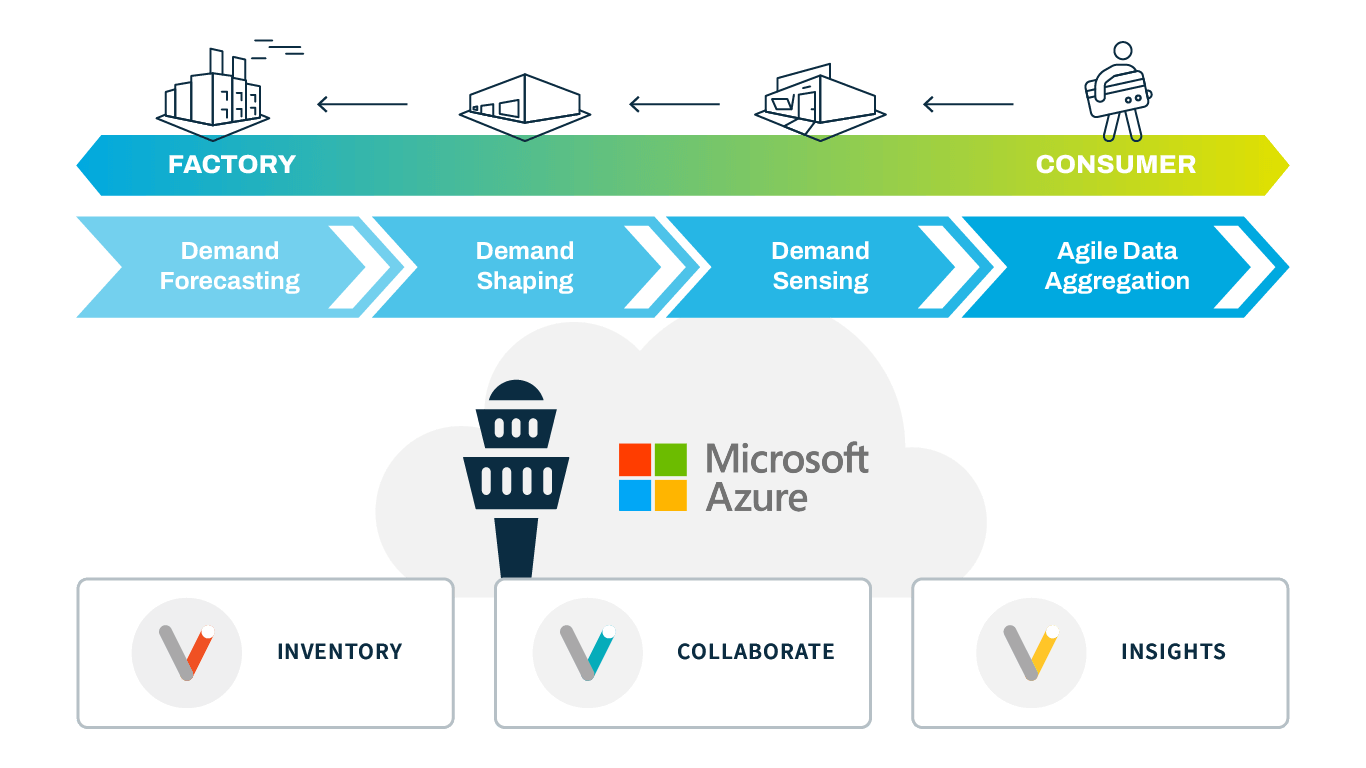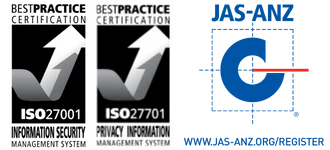During the height of the pandemic, retailers faced acute supply chain challenges as inventory levels fell due to increased demand.
Though limited stocks may no longer be a challenge, retailers are now contending with a new type of setback – inflationary pressures have reduced consumer demand leading to over-supply.
Supply chain disruption has affected the retail industry both in Australia and globally. According to research, more than 90% of Fortune 1000 companies have been affected by supply chain issues. Besides demand troughs, logistics bottlenecks, workforce challenges, and border restrictions were some major limitations, especially at the height of the pandemic.
In early 2022, the Australian Bureau of Statistics reported that 37% of businesses still experienced disruptions in their supply chain. Out of the 37% of businesses, 88% reported delayed deliveries from suppliers, 80% said the suppliers could not provide the products, 75% reported increased transport costs, and 50% had a challenge sourcing a product or getting alternate suppliers.
Globally, supply chain disruptions nearly doubled in 2020, compared to the 3700 global disruptions reported in 2019. In 2021, the numbers escalated to 11,642, with North American recording the highest share of disruptive events, estimated at 47%.
Unfortunately, these challenges do not negate the importance of efficient retail supply chain management in creating positive customer experiences. With many similar businesses targeting the same market, customers are highly likely to ditch a brand that offers a poor delivery experience. Whatever your supply chain challenges are – over-supply or limited supply – it’s crucial to optimize the process to enhance customer satisfaction and avoid losing them to competitors.
What is retail supply chain management (SCM)?
Retail supply chain management (SCM) is the process of managing the flow of products from the supplier to the customer. Retail is characterized by a high volume of transactions and also happens to be highly competitive, which makes supply chain management all the more crucial. Streamlining supply chain management can help you optimize baseline sales without the need for excess inventory and obsolescence.
Examples of retail supply chain management activities include inventory management, executing a shipping strategy, tracking supply and demand changes, maintaining strong relationships with suppliers, and managing costs, among others.
Why is supply chain management (SCM) so important to retailers?
Retail supply chain management (RSCM) is crucial to the success of a retail business. Optimizing your retail supply chain to provide a seamless flow of products from the suppliers to the customers without delays can immensely enhance your customer experience and boost the bottom line.
Let’s examine some of the reasons why supply chain management is important for your retail business.
Lower costs
One of the biggest gains of supply chain management is that it can lead to drastic cost reduction. By streamlining the process, you can identify potential cost-cutting opportunities and leverage them.
Some possible cost reduction strategies may include:
- Identifying costly workflow inefficiencies (e.g., bottlenecks on the workflow, manual processes that can be automated, expensive payment processing platforms, etc.)
- Diversifying your carrier modes (you can explore different carrier modes and settle for the most competitive/cost-efficient options)
- Paying for the right transport (you may want to consider less truckload (LTL) delivery, as it’s more cost-efficient, then if some customers want same-day deliveries, calling for the more expensive full truckload (FTL) delivery, you can pass the cost to them)
- Forecasting customer demand with sales planning (eliminates overstocking, on the one hand, thereby cutting on storage costs and avoiding dead stock, while mitigating the risk of stockouts on the other hand)
- Reducing product packaging (you can maximize packaging to minimize the costs associated with packing products in unnecessarily large packages)
Avoid stockouts
Supply chain management also enables you to avoid stockouts, which can negatively impact the customer shopping experience. Stockouts can result from various reasons, including cash flow challenges, inaccurate demand forecasting, supplier delays, and unexpected demand surges.
With supply chain management, you can eliminate the challenges associated with stockouts, such as order cancellation, negative reviews, losing customers to competitors, and reduced sales.
Win customer trust
Supply chain management helps avoid issues such as delivery delays and stockouts, which can ruin the customer experience. Successful order processing and timely delivery are crucial in building customer trust.
For instance, a customer who orders their lunch from a restaurant expects it to be delivered on time. If, after receiving the order, the restaurant owner discovers they have run out of one key ingredient or have limited transport means, leading to late delivery, the customer will likely lose trust in the restaurant. Probably, next time they want to buy lunch, they might prefer ordering from another restaurant.
Supply chain management enables you to meet the customers’ expectations, like on-time delivery, product availability, after-sale support, etc., thereby winning their trust.

Gain competitive advantage
Having an efficient supply chain gives you a competitive advantage. It can lead to cost reduction, boosting your bottom line, or you could take advantage of the reduced costs to offer your customers competitive prices and boost your sales.
Optimizing the supply chain also enhances your delivery timelines. When customers are confident they will receive what they have ordered on the promised date, it boosts their trust in your brand. Consequently, it builds customer loyalty, giving you a competitive advantage.
Improve vendor collaboration and fulfilment
Managing your supply chain allows you to work on timelines that favour both you and your suppliers, eliminating potential conflict. When you give suppliers adequate time to optimize their delivery procedures, it saves their costs. Generally, supply chain management enhances supplier relationships, improving collaboration and order fulfilment.
Mitigate risks posed by disruption
Overall, an efficient supply chain enables you to mitigate risks posed by disruption. Streamlining the supply chain procedures can minimize risks such as delayed supplies, cancelled orders, reduced sales, and losing customers to competitors. Essentially, it creates a framework for better planning, ensuring you’re more prepared to handle disruption and deliver on customer expectations.
How to optimize your retail supply chain?
Supply chain disruption has affected many businesses, but most have long stepped up their procedures, bringing their chains under control. While the challenges are real, failing to optimize your retail supply chain can hurt your business.

For instance, if a customer wants to buy a product from your retail store and it’s unavailable, their likelihood of hopping onto the next store is pretty high. In such a case, you end up losing not just the sale but probably a potential long-term customer. For this reason, optimizing your retail supply chain cannot be overemphasized.
Here are a few tips for your retail supply chain strategy to get you started.
Digitalize
The first step in your optimization journey is embracing digital technologies. These enable you to aggregate data and create a centralized analytics hub to view your supply chain comprehensively. You can use this information to plan, understand and anticipate your customer needs, foster better supplier relationships, and generally streamline your supply chain.
When it comes to supply chain software, you have plenty of options. However, you need to implement effective technology, i.e., evaluate your supply challenges and choose the solution that can help improve the supply chain processes.
Leverage AI
An Artificial Intelligence (AI)-driven supply chain can drastically minimize disruptions and set your business up for success. According to statistics, early adopters of AI-enabled supply chain management improved their service levels by 65%, inventory levels by 35%, and logistics costs by 15%.
Generally, AI software analyses the data generated throughout the supply chain to provide valuable, real-time insights. This allows you to anticipate and mitigate disruptions, enabling you to run an efficient supply chain. Some features of AI-enabled supply chain management software include automation of the physical flow, demand-forecasting models, integrated business planning, end-to-end transparency, and dynamic planning optimization.
Collaborate
Fostering relationships with vendors is a strategic move that can enhance your sourcing and benefit your organization in multiple ways. Besides improving order fulfillment, it can reduce costs, increase customer value, and give you a competitive advantage.
For instance, your vendors might have information on the best-performing products among your competitors or the best-performing markets based on their supply data. Maintaining a healthy relationship with them can grant you access to invaluable information that you can use to leverage your strengths, explore new opportunities, and optimize business operations.

Innovate
Innovation is a must-have component in retail supply chain planning. One of the reasons why embracing innovation is crucial in your optimization efforts is because building solutions improves sustainability. Seek to create human-centric retail systems that do not alienate your teams but inspire them to constantly explore innovative ways of improving the processes.
Partner with a 3PL provider
Another much easier way of optimizing your retail supply chain management is by partnering with a third-party logistics (3PL) provider. 3PLs are professional logistics companies that help merchants manage their supply chain. They have the machinery and tools necessary to run an efficient supply chain, with services including warehousing, inventory management, order fulfilment, real-time order tracking, returns coordination, and more.
For example, if your store your inventory at a 3PL partner’s warehouse, they help you process, package, ship, and track orders. Generally, you can either outsource a part or your entire fulfilment process.
Integrate your retail systems
Integrating your retail systems is crucial to the efficiency of your supply chain. Thanks to automation technology, you can connect your systems to reduce human involvement. This leads to minimal errors and a faster fulfilment process without forgetting integrated data for real-time visibility of the entire process.
For instance, you can integrate your eCommerce store with your 3PL provider for seamless order fulfilment.
Review regularly
By reviewing the processes regularly, you can identify risk areas and find new ways to innovate and optimize. Besides eliminating bottlenecks to optimize the supply chain’s efficiency, regular reviews also ensure the procedures are current and compliant.
Conclusion
Optimizing your supply chain management is immensely beneficial to your retail business. From lowering costs to avoiding stockouts, improving vendor collaboration, and generally mitigating risks posed by disruptions, streamlining your supply chain is crucial to your success. Moreover, improved supply chain efficiency builds your customers’ trust and gives you a competitive. Whether you have in-house supply chain managers or partner with a 3PL provider, it’s important to familiarize yourself with the optimization strategies we have discussed to ensure your supply chain management is efficient and competitive.
Similarly, KPMG has published specific supply chain trends you should watch out for in 2023. These include disruptions caused by geopolitical instability, cybercrime-caused disruptions, limited access to raw materials, changes in manufacturing footprint, last-mile delivery challenges, and stakeholders (financiers and customers) increased focus on scope 3 emissions control. At the same time, there will be increased supply chain automation to step up data synthesis and analysis capabilities.
Meanwhile, if you’re interested in investing in reliable, AI-enabled retail supply chain management software to optimize your entire supply chain operations and bolster the commercial success of your retail stores, book a discovery session here.



